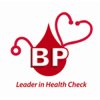Directors of Malaysia’s BP Healthcare, a diagnostics-to-laboratory medical group, plan to raise up to RM500 million (US$157 million) through a special purpose acquisition vehicle (SPAC) listing next year, according to two sources with direct knowledge of the deal.
A SPAC is a shell company with no assets. It is set up with the intention of buying firms, usually within 2-3 years of listing, that will later be folded into the business.
Malaysia has seen a flurry of SPAC listings in recent years, most of them related to the oil and gas sector. BP Healthcare’s plan is the latest sign that the SPAC model is spreading to other industries, after Chemara Palmea Holdings Bhd said last month it plans Malaysia’s first plantation SPAC listing in a deal worth RM650 million.
The healthcare SPAC will use funds from the IPO to buy medical businesses, the sources said.
“They are planning to file the IPO application next month,” one of the sources said, declining to be identified as the matter had not been officially announced.
A BP Healthcare official declined to comment.
The planned listing comes as healthcare spending in Southeast Asia is expected to climb, driven by growing and ageing populations as well as higher incomes. The number of people over 65 in Southeast Asia is forecast to reach 36 million by 2020 from 25 million in 2010, according to analysts.
Unlisted BP Healthcare is Southeast Asia’s largest medical diagnostic chain, with some 50 diagnostic centres, according to its official website.
SPACs, common in the West but still rare in Asia, attract investors who hope a team of experienced industry executives can translate seed money into profits down the road. They are also drawn to bonus giveaways such as warrants attached to shares bought during IPOs.
Malaysia late last year tightened rules on SPACs to assure investors their money will be secure in the months or years that shell companies might take to find an income-generating asset.
source:Reuters
BP Healthcare Directors Plan Rm500m Malaysia IPO Of Shell Firm

